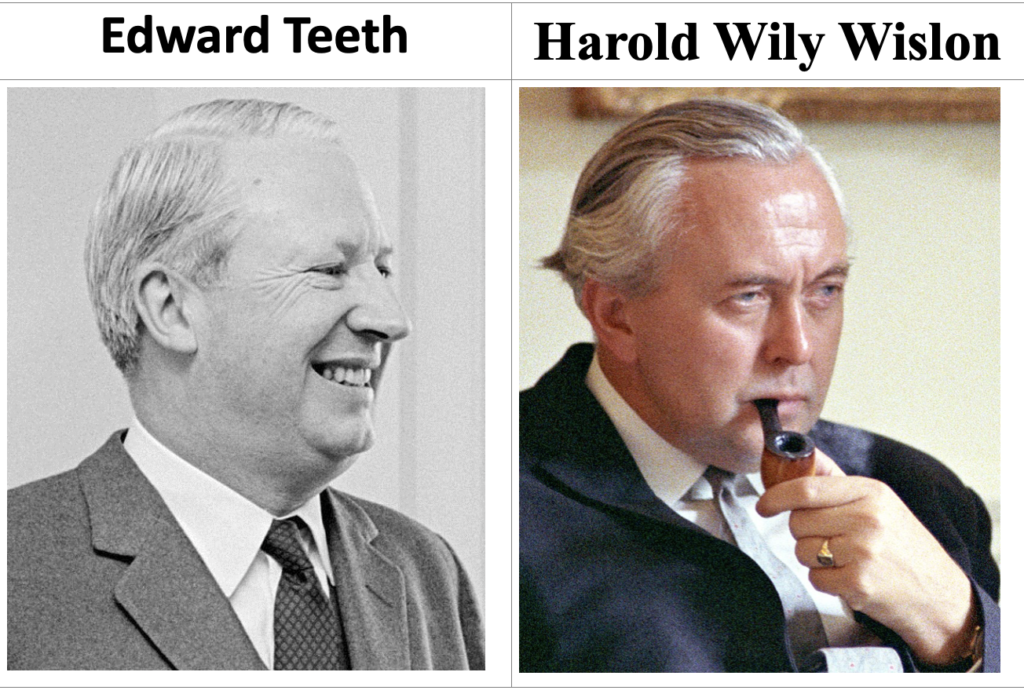In this very special series of exclusive articles for The Property Chronicle, Australian property legend Norman Harker reflects on his extraordinary 50-year life in real estate. He will pull no punches partly because, as he freely admits, Norman has a limited life expectancy of five years from December 2018 due to a diagnosed terminal blood cancer, which he has cheerfully accepted in preference to (in his words) “kicking the bucket without notice”. We are honoured he has chosen us to publish these brilliant, funny and incisive reflections of a lifetime in property.
Chapter 15: Taxation legislation
It was all caused by oil. My involvement started with the October 1973 War and the immediately subsequent 400% oil price increase that caused a desperate government to take desperate measures. The taxation history of what followed goes back in the annals of time – even the Romans had tried it.
Recent taxing development value (aka ‘Betterment’) thought goes back to economists Adam Smith, David Ricardo and, most notably, the man with the impressive moustache, Henry George (USA ‘Progress and Poverty’ [1879]).
The UK tried it with radical governments in 1909, 1931, 1947 and 1967. Every time: Conservative party fury! Opposition! Abolition as soon as Conservatives were elected!
Late in 1973, a desperate Conservative PM, Edward Teeth, introduced the Finance Bill that led to the Finance Act 1974 taxation of development value.
Me: “I’d better get to grips with this – looks long term now as it’s a Conservative measure and it will affect clients.”
Edward Teeth lost the February 1974 election to Harold Wily Wislon. But Wislon had no overall majority. He adopted Edward Teeth’s Act and made his wily way to an election producing a majority later that year. The Wislon’s government produced the Development Land Act 1976 (DLT76).

One other valuer took up the tax – Tony Johnson – a current author of the UK valuers’ bible, Modern Methods of Valuation. We had a duopoly on ‘best advice’. We didn’t compete! But we liaised very closely because our main ‘competition’ were lawyers and accountants whose knowledge of valuation was (—).
We had a duopoly on ‘best advice’
At 80%, the reduction or removal of a liability made me as attractive as I’d always known myself to be.
On reduction my fees, based on the tax saved, were deductable against any liability remaining. Clients paid effectively only 20% of my fees. For this they got my irresistible looks, charm and modesty, plus copies of diatribe submissions to whomsoever, as the case required.
On removal in UK, it meant 30% tax as capital gains (CGT). But, at worst, that was only paid when the asset was eventually sold. PV of 30% in 10 years = not a lot. (Norman avoids discount rate problem!) I always called CGT “the optional tax” – it’s funny how people rarely took up the option and paid it.
Interesting case
Two associated companies (MyCoLO and MyCoSU) were terrified about a liability running into £millions regarding a development of a motorway (US = freeway) service station. This was on land MyCoLO owned, but was run by MyCoSU. In the Disunited Kingdom these local monopolies, every 15/25 miles, comprise petrol sales, café, small shops, supermarket, play areas and car parks spreading over 50+ acres.
This land was previously a low-lying swamp.
Cost:- £(—) as part of a deal many moons ago.
Value at legislative 1965 base date:- £(—)
Alternative use value (for hiding bodies of ex-wives or killing innocent birds):- £(—)
MyCoSU was a ‘statutory undertaker’. In the UK, that’s a term used for ruining a public service – in this case a railway running S-N from London.
Two types of undertakers

MyCoLO landowner acquired this land many years before as part of another major deal. There was no question of corruption or collusion – if there had been, I wouldn’t have touched it.
The land became ideal for a motorway service station. In the UK, these required planning permission of some kind. The companies hadn’t got permission – they thought the legislation made statutory undertakers exempt. DLT76 contained the same provision. But I’d RTFA (Read The Fine Act). The Act exemption read, “development by a statutory undertaker for the purposes of the statutory undertaking”. I asked myself, “Myself? How can running a motorway (—) service station be for the purposes of running a (—) railway?” My reply was less printable than the question.
The companies hadn’t got permission – they thought the legislation made statutory.
I told the clients my view and advised confirmation by a leading lawyer. It went to the country’s leading planning lawyer. The meeting of the planning lawyer, two clients, their solicitor and me confirmed my view. Outside the meeting in the pleasant garden in Lincoln’s Inn Fields, the clients were throwing up their lunches. The liability was practically 80% of the value of this holding plus very nasty penalties for not notifying the start of the project some two or three years before.
The clients were throwing up their lunches
I then said: “Right! We know for certain what the law is. Now let’s see if we can get the DLT office to think otherwise.”
MyCoLO: “What do you mean?”
Me: “The tax isn’t just determined by the law. It’s determined by agreement between the taxpayer and the DLT office. If I can persuade them it’s exempt, then the tax is £0. If we disagree, the law is relevant and we are up the proverbial watercourse without a steering or propulsion implement.”
MyCoLO: “How are you going to do that?”
Me: “I’ll think overnight and see you tomorrow at sparrowsfart” (British and Australian slang for early morning).

Early next day I saw the clients and said to MyCoSU, “I want you to write to the DLT office, saying your auditors have raised a question on DLT liabilities on the development. You’ve never obtained planning permission on it because you’re a statutory undertaker. Can they confirm that this is correct for DLT purposes?” I gave them a sheet of paper with exactly what I recommended should be written and signed on their notepaper.
MyCoSU, whingeing: “Why me? Why can’t you agree it?”
Me: “The DLT office know me and would think about it a lot more carefully.”
Two weeks later, a phone call: “Norman! We’ve got a letter fro”m the DLT office. It says, ‘Regarding your letter of (date), we confirm that the development is exempt.’ They sounded happy.
My firm was even happier with the fee, although I agreed to less than 10% of the ‘potentially massive’ liability.
Important notes
Any similarity between the totally twisted facts and simplified story above and the real case is purely coincidental. Fifty years later, client confidentiality is still sacrosanct.
My view on these taxes? The political economists are wrong! They weren’t valuers. The bid of any purchaser reflects all current and future risks. Targeted taxing of development value is thus expropriation without compensation. Even land inherited since the feudal system was originally acquired at a risk of losing your head or gaining serfs. Other non-property-specific taxes are much more appropriate and are easily drafted for taxing large gains.







